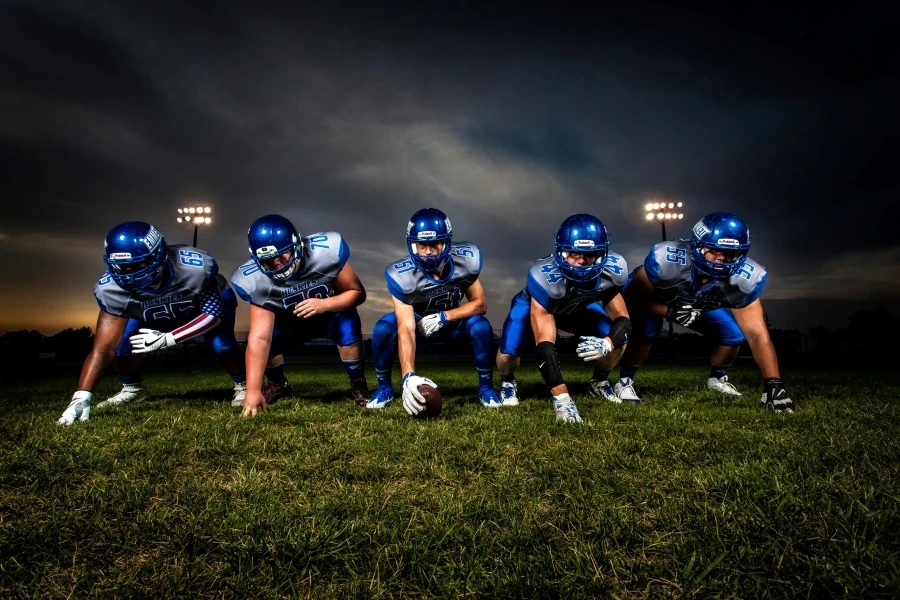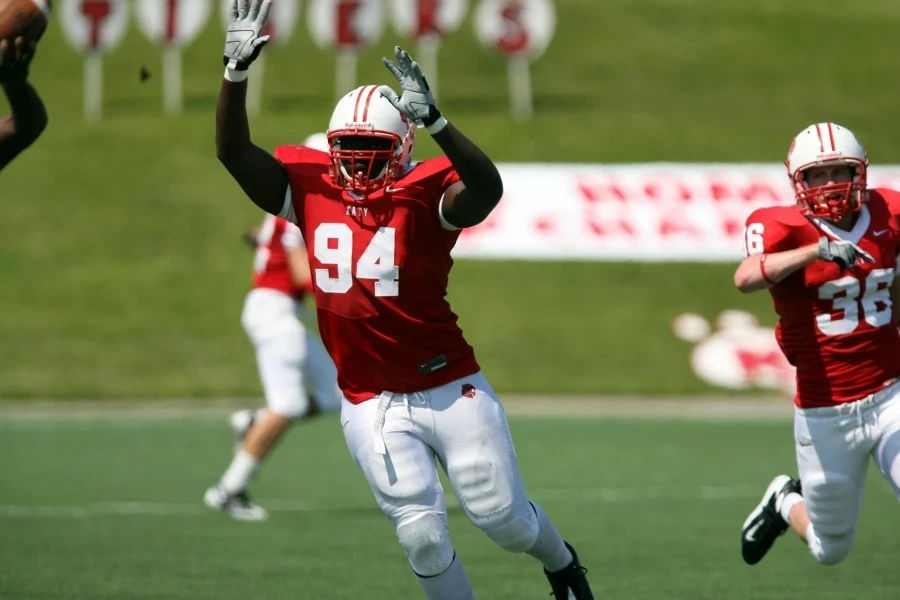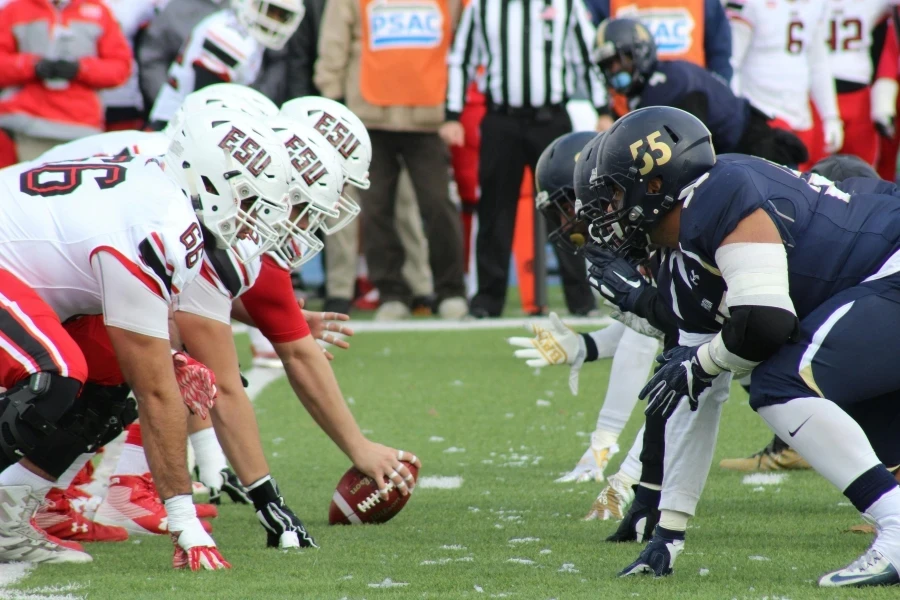The F7 helmet has revolutionized the sports and accessory industry, offering unparalleled protection and performance. As the demand for high-performance helmets continues to rise, understanding the market dynamics becomes crucial for stakeholders. This blog post delves into the current trends, demand drivers, and key players shaping the F7 helmet market.
Table of Contents:
Market Overview
Innovative Design and Materials
Technological Features and Safety
Durability and Quality
Conclusion
Market Overview

Current Trends in the Sports and Accessory Industry
The sports and accessory industry is witnessing a significant transformation, driven by technological advancements and changing consumer preferences. According to Research and Markets, the global market for HUD (Heads-Up Display) helmets, which includes F7 helmets, is expected to grow from $0.79 billion in 2023 to $0.97 billion in 2024, at a compound annual growth rate (CAGR) of 22.1%. This growth is fueled by the increasing demand for enhanced safety measures across various sectors, including sports.
The integration of smart technologies, such as transparent displays and eye-tracking systems, is a notable trend. These innovations not only enhance user experience but also improve safety features. For instance, Digades GmbH partnered with Sygic in July 2023 to introduce a HUD designed for motorcycle enthusiasts, offering real-time navigation and safety updates directly in the rider’s line of sight.
Demand for High-Performance Helmets
The demand for high-performance helmets, including F7 helmets, is on the rise due to heightened safety concerns and regulatory standards. The market size for HUD helmets is projected to reach $2.17 billion by 2028, growing at a CAGR of 22.4%. This surge is attributed to the increasing number of motorcycle enthusiasts, the return of growth and demand to pre-pandemic levels, and rising disposable incomes among consumers.
Moreover, the growing emphasis on road safety and the need for advanced protective gear are driving the demand for high-performance helmets. For example, the National Highway Traffic Safety Administration reported a significant increase in motor vehicle accident fatalities, rising from 38,824 deaths in 2020 to 42,915 deaths in 2021. This alarming trend underscores the need for innovative safety solutions like F7 helmets.
Key Players and Competitive Landscape
The competitive landscape of the F7 helmet market is characterized by the presence of several key players dedicated to developing innovative products. Leading companies such as Bayerische Motoren Werke GmbH, Seiko Epson Corporation, and Shoei Co. Ltd. are at the forefront of this market. These companies are investing heavily in research and development to introduce advanced features and improve helmet performance.
For instance, GoPro Inc. acquired Forcite Helmet Systems Pty Ltd. in January 2024, aiming to enhance helmet performance and safety across various categories. This strategic move highlights the competitive nature of the market and the continuous efforts by key players to stay ahead.
Additionally, the market is witnessing collaborations and partnerships aimed at integrating cutting-edge technologies into helmets. For example, the partnership between Digades GmbH and Sygic to develop a HUD for motorcycle enthusiasts is a testament to the industry’s focus on innovation and safety.
Innovative Design and Materials

Advanced Materials for Enhanced Protection
The f7 helmet stands out in the market due to its use of advanced materials that significantly enhance protection. According to the “Best Ski Helmets of 2024-2025” report, modern helmets are increasingly incorporating materials like EPP (Expanded Polypropylene) foam, which is known for its resilience and ability to withstand multiple impacts. Unlike traditional EPS (Expanded Polystyrene) foam, which can crack under pressure, EPP foam retains its shape and protective qualities even after repeated impacts. This makes the f7 helmet an excellent choice for athletes who push their limits and require reliable protection.
Additionally, the integration of materials like Koroyd and WaveCel has revolutionized helmet design. These materials, characterized by their honeycomb-like structures, offer superior energy absorption and impact resistance. Koroyd, for instance, is used extensively in Smith’s helmet designs, providing a lightweight yet highly protective solution. WaveCel, found in Anon helmets, excels at absorbing angled impacts and reducing rotational forces, making it a critical component in the f7 helmet’s construction.
Ergonomic Design for Maximum Comfort
Comfort is a crucial factor in helmet design, and the f7 helmet excels in this area with its ergonomic design. The helmet’s shape is meticulously crafted to fit the natural contours of the head, ensuring a snug yet comfortable fit. This design minimizes pressure points and distributes weight evenly, reducing fatigue during prolonged use.
The interior of the f7 helmet features plush padding made from high-quality materials like merino wool liners, which are soft, moisture-wicking, and provide excellent insulation. This attention to detail ensures that the helmet remains comfortable in various weather conditions, from the coldest winter days to warmer spring skiing sessions.
Customization Options for a Personalized Fit
One of the standout features of the f7 helmet is its customization options, allowing users to achieve a personalized fit. The helmet incorporates advanced adjustment systems, such as the BOA fit system, which offers precise and easy adjustments with a simple twist of a dial. This system ensures that the helmet fits securely and comfortably, accommodating a wide range of head sizes and shapes.
Moreover, the f7 helmet includes interchangeable padding and liners, allowing users to customize the interior to their preference. This feature is particularly beneficial for those who ski in varying conditions, as it enables them to switch to thicker or thinner liners as needed.
Technological Features and Safety

Cutting-Edge Safety Technologies
The f7 helmet is equipped with cutting-edge safety technologies that set it apart from traditional helmets. One of the most notable features is the inclusion of MIPS (Multi-directional Impact Protection System). MIPS technology is designed to reduce rotational forces during angled impacts, which are common in skiing accidents. This system consists of a low-friction layer inside the helmet that allows the outer shell to rotate independently, thereby reducing the risk of brain injuries.
In addition to MIPS, the f7 helmet also incorporates advanced impact-absorbing materials like Koroyd and WaveCel. These materials enhance the helmet’s ability to dissipate energy during a crash, providing an additional layer of protection.
Integration of Smart Features
The f7 helmet goes beyond traditional safety features by integrating smart technologies that enhance the overall skiing experience. For instance, the helmet is compatible with various audio systems, allowing users to listen to music or take calls without removing their helmet. This feature is particularly useful for those who enjoy skiing with friends or need to stay connected while on the slopes.
Furthermore, the helmet includes a built-in goggle retainer clip, ensuring that goggles stay securely in place during intense activities. This integration of smart features not only enhances convenience but also contributes to overall safety by reducing distractions.
Compliance with Safety Standards
Safety compliance is a critical aspect of helmet design, and the f7 helmet meets and exceeds industry standards. The helmet is certified to meet EN 1077 and ASTM F2040 standards, which are the benchmarks for ski and snowboard helmet safety. These certifications ensure that the helmet has undergone rigorous testing and meets the highest safety requirements.
Additionally, the f7 helmet is designed to comply with multi-sport certifications, making it suitable for activities beyond skiing, such as biking and climbing. This versatility makes the helmet a valuable investment for outdoor enthusiasts who engage in multiple sports.
Durability and Quality

Long-Lasting Materials and Construction
Durability is a key consideration for any helmet, and the f7 helmet is built to last. The use of high-quality materials like EPP foam and Koroyd ensures that the helmet can withstand the rigors of frequent use. These materials are not only impact-resistant but also resistant to wear and tear, maintaining their protective qualities over time.
The helmet’s outer shell is constructed from robust materials like polycarbonate, which provides excellent protection against dings and dents. This construction ensures that the helmet remains in top condition even after being subjected to harsh conditions.
Quality Assurance and Testing
The f7 helmet undergoes stringent quality assurance and testing processes to ensure its reliability and performance. Helmets are subjected to various tests, including impact tests, penetration tests, and retention system tests. These tests simulate real-world conditions and ensure that the helmet can provide adequate protection in the event of an accident.
Manufacturers also conduct field testing, where helmets are tested by professional athletes and outdoor enthusiasts in real-world scenarios. This feedback is invaluable in refining the design and ensuring that the helmet meets the needs of its users.
Weather Resistance for All Seasons
The f7 helmet is designed to perform in all weather conditions, making it a versatile choice for year-round use. The helmet features adjustable ventilation systems that allow users to regulate airflow and maintain a comfortable temperature. This is particularly important for skiers who experience varying weather conditions throughout the season.
The helmet’s materials are also chosen for their weather-resistant properties. For instance, the outer shell is treated with a water-resistant coating, preventing moisture from penetrating the helmet and ensuring that it remains dry and comfortable.
Conclusion
The f7 helmet represents the pinnacle of innovation in helmet design, combining advanced materials, cutting-edge safety technologies, and smart features to provide unparalleled protection and comfort. Its durability and weather resistance make it a reliable choice for outdoor enthusiasts who demand the best. As technology continues to evolve, we can expect future iterations of the f7 helmet to incorporate even more advanced features, further enhancing safety and performance on the slopes.




